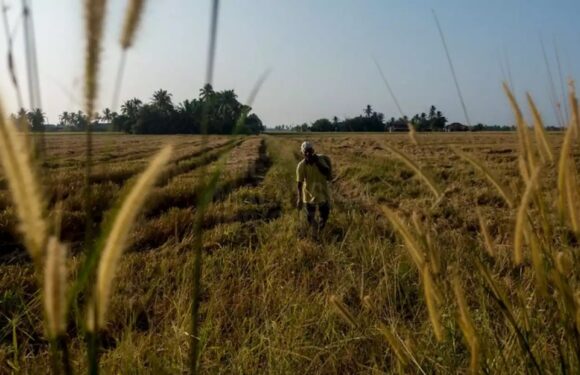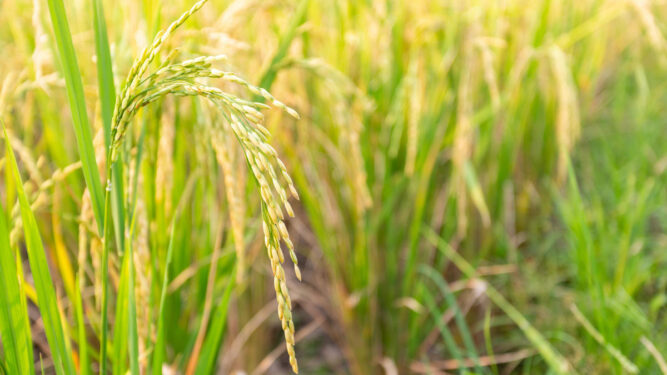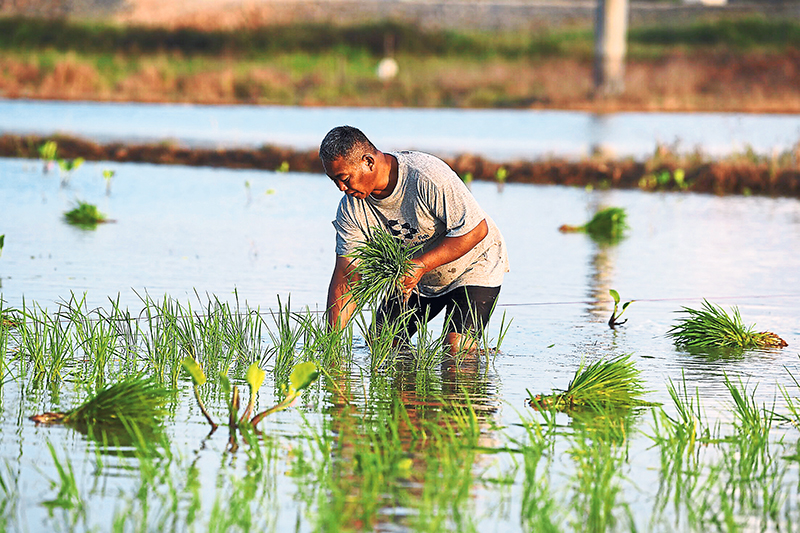PRIME Minister Datuk Seri Anwar Ibrahim did the right thing by forcing Tan Sri Syed Mokhtar Syed Albukhary to distribute some of the profits from Bernas to poor paddy farmers.
While I applaud both Anwar and Syed Mokhtar for coming out with a win-win situation, it is the lack of mechanism or plan on how the profits are distributed that is my major concern.
There are, in fact, many unregistered rice growers such as the Orang Asli in Peninsular Malaysia, and from both Sabah and Sarawak from the tribes of Kadazan-Dusun and Dayaks who are unlikely to see any of these profits distributed where it is most needed.
As an Orang Asli senator, Ajis Sitin has highlighted in Free Malaysia Today on Dec 16, 2022, that the safety of Orang Asli communities and their farming activities are under threat from displaced wild animals such as tigers and elephants entering Orang Asli settlements.
Going where the Need is
Despite this being repeatedly raised to the authorities, nothing had been done. Perhaps, part of this money can be prioritised to build electric fences to protect the crops from wildlife including the elephants, which the Wildlife Department is currently undertaking with the Orang Asli community under the SPEGCom Sistem Pagar Elektrik Gajah Community.
In Sabah and Sarawak, crop raiding by wildlife is an issue which has never caught the attention of the federal government.
As a result, the rural rice farmers in these two states in East Malaysia face a lot of problems of wildlife attacking their crops.
Because it can get so difficult to protect their own crops from invasion by the wildlife, many of them just gave up on their farming activities.
With the money that is contributed by Bernas, the Government can work out some form of compensations for these farmers in the event that their crops are destroyed by wildlife.

This would provide a win-win situation which allow the farmers to cultivate the land, and at the same time allow the wildlife to co-exist with the people.
Subsidies for agrochemicals
The other concern relating to the windfall is in terms of subsidies given for the purchase of agrochemicals.
Studies show that most modern paddy farming in Malaysia is energy intensive. In fact, a more recent study found that around 84% of the energy input comes from fossil fuels.
Crops yields now depend on the extensive use of climate-harming nitrogen fertilisers which, unfortunately, leave behind toxic residues and harm the soil, water and atmosphere.
The Government should from now formulate a policy that there should be no more perverse subsidies that encourage the use of chemical pesticides and fertilisers.
As we are all well aware, the use of agrochemicals are harmful for both the farmers and consumers as well as the environment.
As we are talking about sustainable farming, part of the money should be used to help the farmers develop their ecosystem of organic farming.
The organic wastes from their farming activities should be turned into organic fertilisers, which will eventually help increase the productivity of their annual yields.
Here comes my third point which should be a long term, instead of a quick fix solution.
Import concessions
While Anwar’s idea was to break the monopoly of Bernas by issuing import concessions to paddy farmers’ associations and their koperasi to import rice, more thoughts should be made before this decision is implemented.
Prices of rice, subsidies and import quotas all distort the market, resulting in a situation where poor farmers are finding it cheaper to go to the shop to buy rather than grow the rice.

On the long term, this would not help our national food security. In the event of a war, we would have a shortage of rice, where once the state of Kedah was known as the rice bowl of Malaysia.
If the farmers’ associations are given import permits, farmers would find it more lucrative to import the rice and earn a profit by selling them. Farmers’ role is to grow rice, not to import it.
The fact is that the state of the existing market has forced many Bumiputera rice farmers to stop planting rice. Instead, in one of the most productive paddy farming hub of Sekinchan, the farming is developed by the Chinese community.
It is time for sharing of ideas between the farmers to grow better paddy for the export markets where the blue ocean is.
Instead, the government can and should assist local Bumiputera business graduates from both East and West Malaysia to become entrepreneurs.
Banks are desperately giving away loans these days to anyone with a good business plan, and if properly guided, and given the permit to import rice, these entrepreneurs will have a good chance of success.
For this reason, when I read the news article, I question the plan to allocate “some import rights” to farmers’ associations.
This would not benefit the poorest farmers, for example, the Orang Asli and the poorest traditional “hidden” farmers with their hill paddy in East Malaysia, who are not members of these associations.
With all these key points, I would support the end of special concession given to Bernas so long as we ensure that all small-scale indigenous farmers benefit in the longer term. – Dec 19, 2022
Dr Teckwyn Lim is an honorary associate professor at the University of Nottingham Malaysia and managing director of an environmental consultancy company. He is also a visiting fellow at the Department of Anthropology & Sociology, Universiti Malaya, and a member of the Centre for Malaysian Indigenous Studies.
The views expressed are solely of the author and do not necessarily reflect those of Focus Malaysia.
Main pic credit: The Malaysian Reserve









